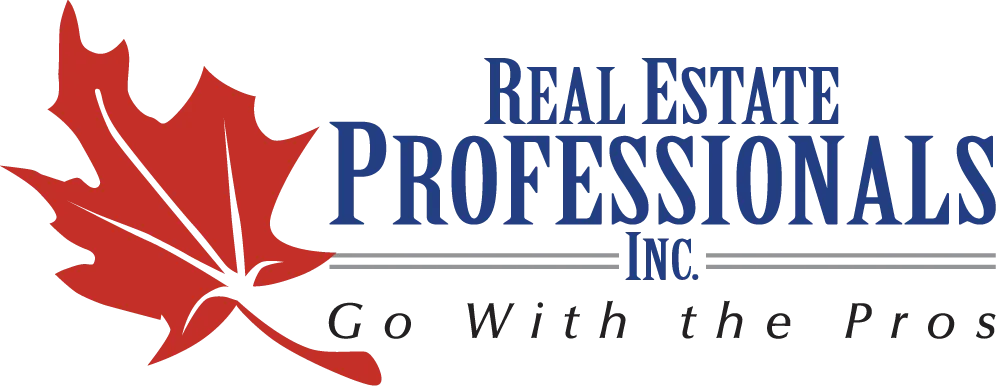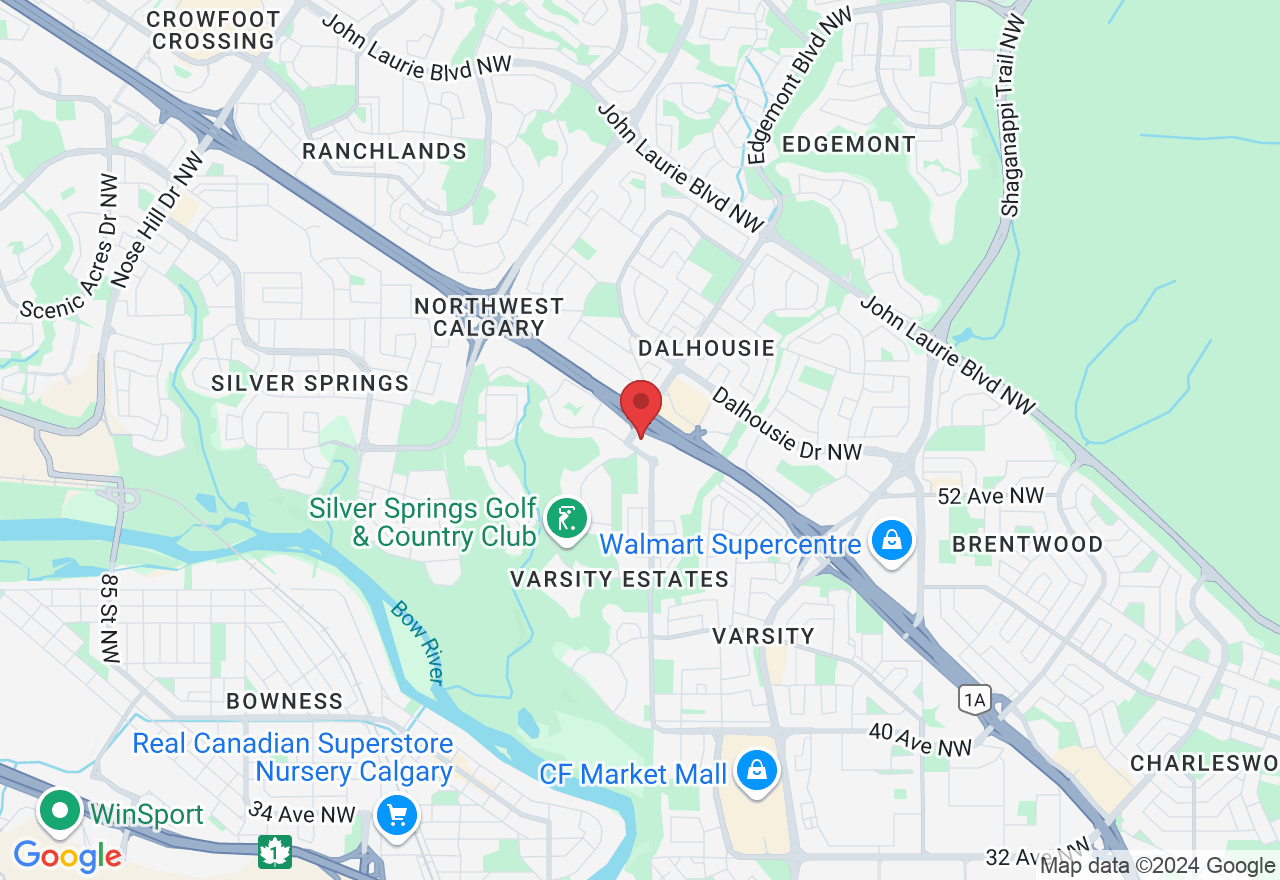Selling
Selling your home can be a big undertaking, especially when it's your first time. How do you prepare your house for sale? Will you renovate or update your home prior to selling? How do you get th most money for your home? When is the best time to sell? We have the answers to all your questions. Give us a call and let's have a conversation.
Seller’s Guide
Selling your home is a complex, multi-step process that calls for the expertise of a REALTOR®. There are many things you’ll need to consider, and to help you through it, here’s a general overview on what to expect and prepare.
Our Seller Guarantee
Entering into a listing agreement with a real estate agent can be a risky business. Every sales representative will promise the world when it comes to listing your home, but how many of them can back that up with solid performance?
We are offering you a way to sell your home that is totally risk-free.
Our pledge at David Hansen Real Estate is to provide you with the highest level of service in the real estate industry, and our commitment to this pledge is 100%.
We are so confident that our real estate system will work for you, we at David Hansen Real Estate guarantee you the right to cancel your listing agreement at any time prior to accepting an offer, with no penalties or obligations if you feel our service doesn’t live up to our promise. Basically, if we don't do our job, you can fire us.
Contact us today for a complimentary home evaluation of the current market value of your home. Risk Free.
David Hansen
Real Estate Professionals Inc.
403-831-9101
Selling FAQ
What is the current real estate market like for sellers in Calgary?
The Calgary real estate market’s conditions can vary widely, but here’s a comprehensive overview:
Market Trends: The market often experiences fluctuations based on economic conditions. Recently, Calgary has seen a moderate increase in property values and a stabilization in inventory levels, meaning supply and demand are relatively balanced. Sellers can benefit from a market that doesn’t favor buyers excessively but still requires effective pricing and presentation strategies.
Buyer Demand: Demand varies by neighborhood and property type. High-demand areas, especially those with proximity to amenities or recent infrastructure upgrades, might see quicker sales and higher offers. In contrast, more saturated areas may experience slower sales and require competitive pricing.
Economic Influence: Economic factors such as oil prices, employment rates, and general economic health can influence buyer behavior. An improving economy generally boosts confidence and demand, whereas economic uncertainty might lead to cautious buying.
Interest Rates: Low mortgage rates can attract more buyers, increasing competition for properties. Conversely, higher rates can reduce buyer purchasing power and slow down the market. Monitoring interest rate trends is crucial for understanding potential buyer behavior.
Seasonal Effects: Spring and summer are peak times for real estate activity, with more buyers actively looking and a higher turnover rate. Winter might see a slowdown due to holidays and weather conditions, but this can also mean less competition.
Consulting with a local realtor who tracks these dynamics can offer real-time insights and strategic advice.
How do I determine the right listing price for my property?
Accurate pricing is key to attracting buyers and achieving a successful sale:
Comparative Market Analysis (CMA): This involves analyzing recent sales of similar properties (comparables) in your neighborhood. A realtor will look at factors like sale price, property size, condition, and features to determine a competitive price range.
Current Market Conditions: Consider the broader market trends and the price trajectory for properties similar to yours. If prices are rising, you might price slightly higher, whereas a declining market may necessitate a more conservative approach.
Property Condition and Improvements: Evaluate the state of your property, including its layout, finishes, and overall upkeep. Recent renovations or upgrades, such as modern kitchens or updated bathrooms, can justify a higher listing price.
Professional Appraisal: A certified appraiser can provide an unbiased valuation based on the property’s condition and current market data. This can be particularly useful if you want an additional layer of assurance about your pricing strategy.
Setting the right price involves balancing your financial goals with market realities to attract serious buyers while maximizing your return.
What are the most effective strategies for marketing my property in Calgary?
An effective marketing strategy encompasses various elements to reach potential buyers:
Professional Photography and Videography: High-resolution photos and engaging videos can showcase your home’s best features, creating an appealing online presence. Invest in professional services to ensure images highlight the property’s strengths.
Virtual Tours and 3D Walkthroughs: These tools offer an immersive experience for buyers, especially those who cannot visit in person. Virtual tours can help your property stand out in online searches and attract more serious inquiries.
Staging: Professional home staging can significantly enhance the appeal of your property. Stagers arrange furniture and decor to create inviting spaces and help buyers visualize the home’s potential.
Online Listings and Social Media: List your property on major real estate platforms like Realtor.ca and MLS, as well as utilize social media channels for broader exposure. Targeted online advertising can reach potential buyers based on demographics and interests.
Open Houses and Private Showings: Hosting open houses allows multiple buyers to view the property in a short period, while private showings offer a more personalized experience. Both approaches can generate interest and competitive offers.
Local Advertising: Leverage local newspapers, community boards, and real estate magazines to reach potential buyers who may prefer traditional media.
Combining these strategies effectively increases your property’s visibility and attracts qualified buyers.
What should I do to prepare my home for sale?
Preparing your home for sale involves several critical steps to enhance its appeal and marketability:
Deep Cleaning: Clean every corner of your home, including carpets, windows, and fixtures. A spotless home creates a positive impression and suggests to buyers that the property has been well-maintained.
Decluttering: Remove excess belongings to make your home appear more spacious. Clear countertops, organize closets, and pack away personal items to create a neutral, inviting environment.Repairs and
Maintenance: Address any visible issues such as leaky faucets, squeaky doors, or chipped paint. Fixing minor problems can prevent buyers from being deterred by what might seem like larger issues.
Curb Appeal: Enhance the exterior of your home with fresh landscaping, clean driveways, and well-maintained entryways. First impressions count, and a well-kept exterior can make a significant impact.
Staging: Arrange furniture and decor to highlight the property’s best features and create an appealing layout. Consider painting walls in neutral colors and adding attractive, modern accessories.
Depersonalizing: Remove personal photos, unique art, and memorabilia. This allows buyers to imagine themselves living in the space rather than being distracted by your personal tastes.
A well-prepared home attracts more buyers and can command a higher sale price.
What are the typical costs associated with selling a property in Calgary?
Understanding and budgeting for selling costs is crucial:
Real Estate Agent Commission: The typical commission structure to sell your home is 7% of the fisrt 100K and 3% of the balance of sold price. - with half of this amount offered out to the Realtor that brings a buyer - though this is negotiable. The total commission is often split between the agents involved in the transaction.
Legal Fees: Legal fees for handling the sale usually range from CAD $1,000 to $2,000. These fees cover services like drafting and reviewing the sale agreement, ensuring the title transfer, and managing closing documents.
Home Repairs and Staging Costs: The cost of repairs can vary widely depending on the issues found. Staging costs also vary but typically range from a few hundred to several thousand dollars, depending on the extent of staging needed.
Mortgage Discharge/Transfer Fees: If you have an existing mortgage, there may be discharge fees charged by your lender. These fees cover the administrative costs of removing the mortgage from the property title.
Property Transfer Fees: Although Alberta doesn’t have a land transfer tax, there may be other costs related to the transfer of ownership, which your lawyer can detail.
How long does it typically take to sell a property in Calgary?
The timeframe for selling a property depends on various factors:
Market Conditions: In a balanced or seller’s market, homes might sell within 30 to 60 days. In a buyer’s market, where inventory exceeds demand, the process could take longer, sometimes several months.
Property Features: Homes that are well-priced, in good condition, and located in desirable neighborhoods tend to sell faster. Unique or high-priced properties might take longer due to a smaller pool of buyers.
Pricing Strategy: Properly pricing your home based on market conditions and comparable sales can lead to a quicker sale. Overpricing may result in prolonged market time and potentially lower offers.
Seasonal Factors: Real estate activity often peaks in spring and summer, leading to quicker sales. Winter can slow down the market due to weather and holiday distractions, but motivated buyers can still make purchases during this time.
Your realtor can provide a market analysis and recent sales data to help set realistic expectations for your home’s selling timeline.
What is the role of a real estate agent in the selling process?
A real estate agent provides comprehensive services to facilitate the sale:
Market Analysis: Conducts a Comparative Market Analysis (CMA) to determine a competitive listing price based on recent sales of similar properties.
Marketing: Develops a marketing plan, including professional photography, online listings, and advertising, to attract potential buyers.
Showings and Open Houses: Coordinates and conducts property showings and open houses to showcase the home to interested buyers.
Negotiations: Manages negotiations between you and potential buyers to achieve the best possible sale price and terms. This includes handling counter-offers and resolving any issues that arise.
Transaction Management: Oversees the administrative aspects of the sale, such as preparing and reviewing contracts, coordinating with the buyer’s agent, and ensuring all legal requirements are met.
Advice and Support: Offers guidance throughout the selling process, from preparing the home for sale to closing. Provides insights on market conditions, pricing strategies, and potential issues.
An experienced agent can streamline the process and provide expert guidance to maximize your sale’s success.
How do I handle offers and negotiations?
Handling offers and negotiations involves several steps:
Review Offers: When you receive an offer, review it carefully with your realtor. Consider the offer price, contingencies, closing date, and any other terms.
Negotiate Terms: Your realtor will negotiate on your behalf to achieve favorable terms. This may involve counter-offers or adjusting conditions to meet both parties' needs.
Consider Multiple Offers: In a competitive market, you might receive multiple offers. Evaluate each one based on price, buyer qualifications, and terms. Your realtor can help you compare offers and decide on the best course of action.
Accept or Reject Offers: Once you’ve negotiated terms, you can accept, reject, or counter the offer. Acceptance usually involves signing the sale agreement and moving forward with the transaction.
Contract Review: Ensure the final contract is reviewed by your lawyer to confirm all terms are accurately represented and legally binding.
Effective negotiation can significantly impact your final sale price and terms, so having an experienced realtor by your side is beneficial.
What are the legal requirements for selling a property in Calgary?
When selling a property in Calgary, it's crucial to understand and comply with various legal requirements to ensure a smooth transaction and avoid potential disputes. Here’s a comprehensive look at the key legal aspects:
1. Disclosure Obligations
Property Condition Disclosure: Under Alberta law, sellers are required to disclose any known defects or issues with the property. This includes structural problems, pest infestations, water damage, mold, or issues with major systems like HVAC, plumbing, and electrical. Disclosure helps prevent potential legal disputes and ensures transparency.
Property Disclosure Statement (PDS): Many sellers provide a Property Disclosure Statement (PDS), a document where sellers disclose known issues about the property. Although not mandatory, it’s a good practice to provide this form to potential buyers to demonstrate transparency.
Specific Disclosures: In addition to general property conditions, you may need to disclose specific information such as past insurance claims, history of flooding, or the presence of hazardous materials like asbestos.
2. Sale Agreement
Agreement of Purchase and Sale: This legally binding contract outlines the terms of the sale, including the purchase price, deposit amount, closing date, and any conditions or contingencies. It’s crucial that this document is clear and accurately reflects the agreed terms.
Contingencies: The agreement may include contingencies, such as the buyer’s need to obtain financing, a satisfactory home inspection, or the sale of their current property. These conditions must be fulfilled for the sale to proceed.
Special Clauses: Include any special clauses or agreements, such as requests for repairs, personal property inclusions, or specific closing arrangements. These should be clearly documented in the sale agreement.
3. Title Transfer and Liens
Title Transfer: The title of the property must be transferred from the seller to the buyer. This involves ensuring that there are no outstanding liens, encumbrances, or legal claims against the property. The process is typically managed by your real estate lawyer or notary.
Title Search: A title search is conducted to confirm that the seller is the legal owner of the property and that there are no issues affecting the title. This search verifies the property’s legal description and checks for any encumbrances or claims.
Discharge of Mortgages: If there is an existing mortgage, it must be discharged upon sale. The seller’s lawyer will coordinate with the lender to ensure the mortgage is paid off and the discharge is registered.
4. Legal Representation
Real Estate Lawyer: Engaging a real estate lawyer is highly recommended to navigate the legal aspects of the sale. They will handle the preparation and review of legal documents, ensure compliance with local laws, and manage the closing process.
Drafting and Reviewing Contracts: The lawyer drafts and reviews the sale agreement to ensure it is legally sound and protects your interests. They check for compliance with Alberta’s real estate regulations and advise on any legal implications.
Closing Process: The lawyer manages the closing process, including the transfer of funds, registration of the new title, and the finalization of all legal documents. They ensure that all requirements are met before the transaction is completed.
5. Closing Process
Settlement and Transfer: The closing process involves the final settlement of the sale. This includes the transfer of the purchase price from the buyer to the seller, usually through a lawyer’s trust account. The sale proceeds are disbursed to the seller after deducting any outstanding mortgages or fees.
Adjustments: Adjustments are made for property taxes, utilities, and any prepaid expenses. These adjustments ensure that the buyer and seller each pay their share of expenses incurred up to the closing date.
Title Registration: The new owner’s title is registered with the Land Titles Office, and the previous owner’s title is updated to reflect the transfer of ownership. This step formalizes the transfer and protects the buyer’s legal claim to the property.
6. Taxes and Fees
Capital Gains Tax: While not directly a legal requirement for selling, be aware of potential tax implications. If the property is not your primary residence, you might be liable for capital gains tax on the profit from the sale.
Principal Residence Exemption: If the property is your primary residence, you may be eligible for a principal residence exemption, which can reduce or eliminate capital gains tax on the sale.
Legal Fees: Budget for legal fees, which can range from CAD $1,000 to $2,000, depending on the complexity of the transaction. This covers the legal services provided during the sale process.
7. Compliance with Municipal and Provincial Regulations
Permits and Compliance: Ensure that any renovations or improvements made to the property comply with local municipal codes and regulations. Unpermitted work could affect the sale and lead to legal issues.
Homeowners’ Association (HOA) Rules: If your property is part of an HOA, review any rules or restrictions regarding the sale. You might need to provide the HOA with notice or obtain approval for the sale.
8. Final Documentation and Records
Record Keeping: Maintain copies of all documents related to the sale, including the sale agreement, disclosure forms, closing documents, and any correspondence with the buyer or their agent. This documentation is important for your records and any potential future legal matters.
By understanding and adhering to these legal requirements, you can ensure a smoother selling process and mitigate the risk of legal complications. Working closely with a qualified real estate lawyer and experienced real estate professionals can help you navigate these requirements effectively and protect your interests throughout the transaction.
How can I maximize the sale price of my property?
Maximizing the sale price of your property involves several targeted strategies, each designed to enhance your home’s appeal and value. Here’s a comprehensive guide to achieving this:
1. Enhance Curb Appeal
Landscaping: Invest in landscaping to create an inviting exterior. This could include planting flowers, trimming hedges, mowing the lawn, and adding fresh mulch. Even small changes, like planting colorful annuals or installing garden lighting, can make a big difference.
Exterior Maintenance: Ensure that the exterior of your home is well-maintained. This includes power-washing the siding, cleaning the gutters, painting or touching up the exterior, and fixing any visible issues such as cracked walkways or damaged fences.
Front Door: Consider upgrading or repainting your front door, and add a new welcome mat. A fresh, attractive front door makes a strong first impression and can significantly enhance curb appeal.
Lighting: Install outdoor lighting to highlight your property’s best features and provide a welcoming ambiance for evening showings. Solar path lights or decorative fixtures can add a touch of charm.
2. Strategic Upgrades and Renovations
Kitchen and Bathrooms: These are often the most scrutinized areas of a home. Consider minor renovations or upgrades, such as replacing outdated fixtures, installing new countertops, or refreshing cabinetry with paint or new hardware. Even small changes like new faucets or a modern backsplash can add value.
Energy Efficiency: Energy-efficient upgrades can appeal to environmentally conscious buyers and potentially lower utility bills. Consider installing new windows, updating insulation, or adding energy-efficient appliances.
Flooring: Replace or refinish flooring as needed. Hardwood floors are often preferred, but if your property has carpet, ensure it is clean and in good condition. If the budget allows, consider replacing worn carpets with new flooring.
Paint and Wall Coverings: A fresh coat of neutral paint can make your home feel new and appealing. Neutral colors help potential buyers envision their own style and preferences.
3. Home Staging
Professional Staging: Hiring a professional stager can significantly impact how your home is perceived. Stagers arrange furniture and decor to showcase your home’s strengths, create a cohesive look, and make spaces feel larger and more inviting.
Furniture Arrangement: Reconfigure furniture to optimize flow and functionality. Ensure that rooms are not overcrowded and that each space is used effectively. For example, a small bedroom can be staged as a cozy guest room or office.
Decor and Accessories: Use tasteful decor and accessories to create a warm, welcoming environment. This includes adding throw pillows, area rugs, and artwork that complement the space without overwhelming it.
Neutral Presentation: Aim for a neutral presentation that allows potential buyers to imagine their own belongings in the space. Remove personal items and avoid overly trendy decor.
4. Effective Marketing Strategies
Professional Photography: High-quality photos are essential for making a strong first impression online. Hire a professional photographer to capture your home’s best angles, ensuring good lighting and staging are in place.
Virtual Tours and 3D Walkthroughs: Offer virtual tours or 3D walkthroughs to give potential buyers a comprehensive view of your property without needing to visit in person. This is particularly valuable for out-of-town buyers and can increase interest.
Online Listings: List your property on major real estate websites such as Realtor.ca, MLS, and Zillow. Ensure the listing includes a detailed description, high-quality photos, and highlights key features and upgrades.
Social Media Advertising: Utilize social media platforms like Facebook, Instagram, and LinkedIn for targeted advertising. You can reach specific demographics and geographic areas to attract potential buyers who are actively looking for homes.
Print Marketing: Use traditional marketing methods such as flyers, brochures, and real estate magazines to reach local buyers. Effective print marketing can complement online efforts and increase your property’s exposure.
5. Competitive Pricing
Market Analysis: Conduct a Comparative Market Analysis (CMA) to determine the most competitive price for your home. This analysis considers recent sales of similar properties, current market conditions, and the unique features of your home.
Price Adjustments: Be open to adjusting the price based on feedback from showings and market responses. Pricing too high can deter buyers, while pricing too low might result in a quicker sale but less return.
Pricing Strategy: Consider pricing your home slightly below a round number (e.g., CAD $499,000 instead of CAD $500,000) to attract more interest. This strategy can create a sense of urgency and attract buyers searching within a specific price range.
6. Timing the Sale
Seasonal Considerations: Timing your sale for peak seasons, such as spring or summer, can lead to better results due to higher buyer activity. However, if selling in the off-season, ensure your marketing strategies are robust to overcome the lower activity levels.
Market Conditions: Monitor current market trends and economic conditions. Selling during a strong seller’s market, where demand exceeds supply, can help you achieve a higher sale price.
By implementing these detailed strategies, you can enhance your property’s appeal, reach a broader audience, and potentially secure a higher sale price. Consulting with a knowledgeable realtor can further refine these strategies based on your specific property and market conditions.
Easy Home Staging Tips!
Is Your Home "Fit to Sell"?
Preparing your home to be as presentable as possible is an important role you can play to ensure your home sells quickly and for the highest possible price.
David Hansen Real Estate has provided these 10 great tips to help you prepare your home for sale.
What Our Clients Say
David provided exceptional service. He helped me sell my townhome and purchase a detached home in Calgary. He was excellent at explaining each step of the process and I felt confident that I got the best price when purchasing. He also got me above list price for my townhome which was sold within the first weekend of listing! Overall very happy with my experience, I would definitely work with David again in the future. Thank you David for all your help!

Beau Steedsman
I originally put off buying my first apartment because I thought it would be too stressful, but working with David made the process much more approachable. He guided me through the process, starting with getting pre qualified. I also learned which Condo's were good investments and which to stay away from. when it came time to purchase an apartment, I had enough experience that I knew I had found the right one! Thank you David for making the process easy - and Fun!

Donald James Smith
I needed help with finding an investment property. After working with David for a few weeks, we found the perfect apartment that fit my price range and desired area. Since buying the property, it has gone up substantially in value and I will soon be able to use the equity to buy another property! Thank you David for helping me find a solid investment property. I feel more confident in investing knowing I have a professional to guide me and answer all my questions.

Christa Harris
Get in Touch
Address: 202, 5403 CROWCHILD TRAIL N.W.
Calgary, Alberta T3B 4Z1
Email: [email protected]
Cell: 403-831-9101
Hours of Operation:
Mon – Sat 9am to 6pm
Sunday and Holidays – Closed
Data is supplied by Pillar 9™ MLS® System. Pillar 9™ is the owner of the copyright in its MLS® System. Data is deemed reliable but is not guaranteed accurate by Pillar 9™. The trademarks MLS®, Multiple Listing Service® and the associated logos are owned by The Canadian Real Estate Association (CREA) and identify the quality of services provided by real estate professionals who are members of CREA. Used under license.

